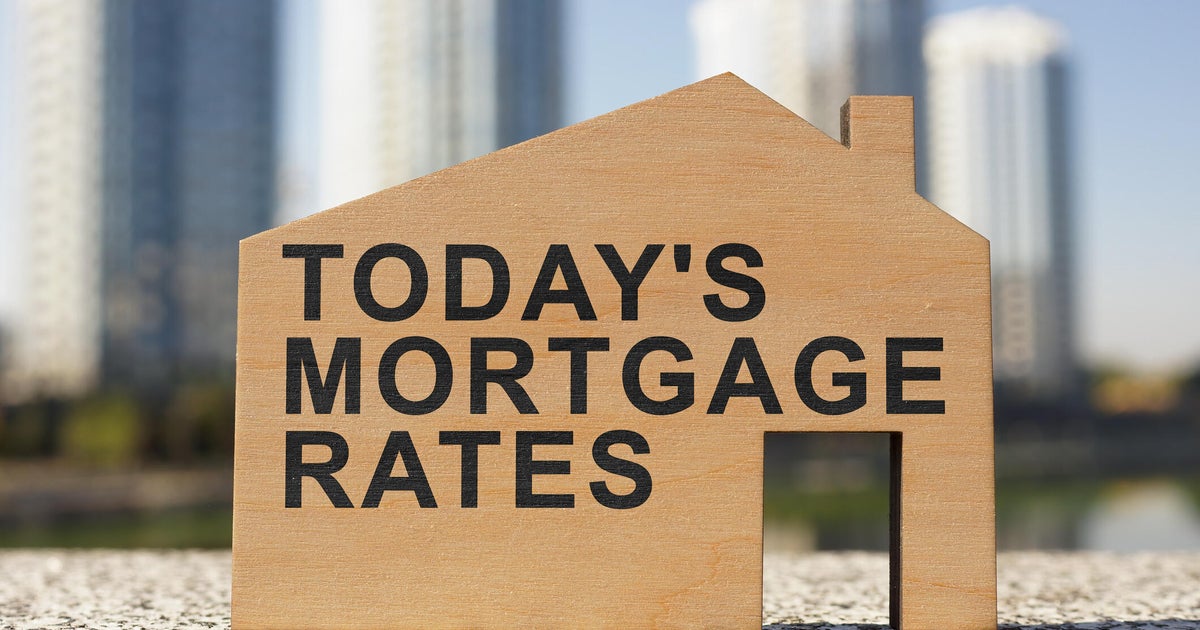Interest rates are set to rise. For consumers, it could "add up quickly."
Americans are likely to find themselves paying more for loans and credit this year, with the Federal Reserve signaling on Wednesday that it plans to start boosting its short-term interest rate in March from its current level of close to zero.
That shift is a response to the highest inflation in four decades, with prices jumping 7% in December — a trend that economists think is likely to continue for months. Tightening monetary policy raises the costs of borrowing for consumers and businesses, weakening demand and curbing prices.
But it could also pinch people's budgets as the Fed continues to normalize policy over the rest of 2022. Wall Street analysts expect the central bank to lift rates three or four times this year, with each increase boosting the benchmark federal funds rate by 0.25%, or even 0.5% if inflation persists and the Fed decides to slam on the brakes. For consumers, that likely means higher credit card rates and more expensive loans.
"What the Fed is realizing is that by having so much cheap money available, it is really causing a lot of consumers to say, 'Oh, I couldn't afford that before but now I can,'" said Kent Lugrand, president and CEO of InTouch Credit Union.
Every 0.25% increase equates to an extra $25 a year in interest for $10,000 in debt. So if the Fed boosts rates by a total of 1% over four hikes this year, consumers will pay $100 extra annually on that debt.
"Depending on the amount of your debt, that can add up quickly," Lugrand said.
Precarious financial situation
That double barrel of high inflation and pricier debt could be painful for some consumers, noted Colleen McCreary, consumer financial advocate at Credit Karma. The personal finance firm found that more than half of Americans are now in worse financial shape than before the pandemic. Among households earning less than $50,000 a year, 6 in 10 are in a more precarious position, the study found.
"We're still very much living in this tale of two cities," McCreary said. "We have two ends of the spectrum, and a potential interest rate hike will impact you depending on what end of the spectrum you are in."
Because the Fed won't increase rates until March at the earliest, Americans have some time to pay down credit card debt or refinance adjustable rate loans into fixed-rate loans, saving money over the long-term.
Here's how higher rates could impact you, along with advice from the experts.
Credit card rates, auto loans
Credit card rates are likely to inch up in line with the Fed's move, since cards' charges are based on banks' prime rate, which moves in tandem with the Fed. Expect that to occur over one or two billing cycles following the Fed's rate increase,Matt Schulz, chief credit analyst at LendingTree, told CBS MoneyWatch.
"Assuming that the Fed only moves rates by one-quarter of a point or one-half of a point, it's not likely to rock most people's worlds financially," Schulz said. "The bigger threat is sustained increases over the course of time that add up to a really big deal."
To avoid getting hit by higher credit card rates, Schulz recommends that consumers call their card issuers now and ask for a lower rate. LendingTree has found that about 8 in 10 people succeed in securing a lower rate simply by requesting one.
He noted, "If you get the rate reduced, it'll be by a good bit more than the one-quarter of a percentage point the Fed is going to raise its rates, so you'll come out ahead."
The Fed's rate hikes won't necessarily raise auto loan rates. Car loans tend to be more sensitive to competition, which can slow the rate of increases.
Mortgages, home equity lines of credit
Unlike plastic, mortgage rates don't usually rise in line with the Fed's rate hikes. Sometimes they even move in the opposite direction. Long-term mortgages tend to track the rate on the 10-year Treasury, which, in turn, is influenced by a variety of factors. These include investor expectations about future inflation and global demand for U.S. Treasurys.
When inflation is expected to stay high, investors are inclined to sell Treasurys because the return on those bonds, known as yields, tend to be minimal after accounting for inflation. As that happens, the selling pressure on the bonds forces Treasurys to offer higher yields to attract investors. The result can be higher mortgage rates, though not always.
But with inflation currently far exceeding the Fed's 2% target, fewer investors are buying Treasurys as a safe haven. And with numerous Fed rate hikes expected, the rate on the 10-year note could rise over time — and by extension, so would mortgage rates. It's just hard to say when.
Home equity lines of credit and other variable-interest debt would rise by roughly the same amount as the Fed hike. That's because those rates are based in part on banks' prime rate, which moves in tandem with the Fed.
Savings accounts, CDs
This is a bright spot for investors, especially those who have been dismayed by the low interest rates paid by banks for these vehicles.
"The impact of increasing rates is a double-edged sword: It makes it more expensive for borrowers. For people who are lenders, holding CDs or buying bonds — they will see higher rates of interest being paid for them," said Christopher Jones, chief investment officer at Edelman Financial Engines.
Typically it takes banks two to three months to translate those higher rates into better deals for savings accounts and CDs, said Lugrand of InTouch Credit Union. But this year should "mark the beginning of better rates" for savers, he noted.
Overall, investors and consumers shouldn't overreact to rising interest rates, Jones said.
"Interest rates returning to more normal levels is not necessarily a bad thing," he said. "It generally is a recognition of better economic growth and better economic conditions. But whenever there is change, there is some anxiety that comes with it."
—With reporting by the Associated Press.



